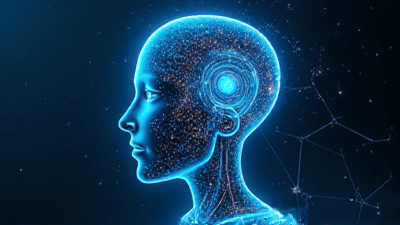
Artificial Intelligence (AI) has emerged as one of the most transformative technologies of our time. Its potential to enhance efficiency, drive innovation, and solve complex problems is immense. However, as AI systems become more ingrained in our daily lives, ethical considerations surrounding their development and deployment have come to the forefront. Balancing innovation with responsibility is paramount to ensuring that AI benefits society as a whole.
Understanding Artificial Intelligence
What is Artificial Intelligence?
AI refers to the simulation of human intelligence in machines programmed to think, learn, and perform tasks traditionally requiring human cognition. This encompasses a variety of technologies, including machine learning, natural language processing, robotics, and computer vision. AI systems are designed to analyze data, identify patterns, and make decisions based on their learning experiences.
The Rapid Growth of AI
The rapid growth of AI can be attributed to several factors, including:
-
Data Availability: The immense amounts of data generated by digital interactions provide AI systems with the necessary training material to improve their accuracy and effectiveness.
-
Advancements in Computing Power: The increase in processing capabilities, particularly with the development of graphics processing units (GPUs) and cloud computing, has expanded the potential for complex AI applications.
-
Increased Investment: Businesses and governments are investing heavily in AI research and development to improve operational efficiency, enhance customer experiences, and create competitive advantages.
The Promise of AI
AI technologies offer numerous benefits across various sectors, including:
-
Healthcare: AI can assist in diagnostics, personalized medicine, and patient management, ultimately leading to improved outcomes and reduced costs.
-
Finance: AI-powered algorithms can analyze vast datasets to identify trends, enhance fraud detection, and streamline trading processes.
-
Transportation: Autonomous vehicles use AI to improve safety, optimize routes, and reduce traffic congestion.
-
Education: AI can facilitate personalized learning experiences, adapting to individual student needs and helping educators identify areas where students may struggle.
-
Customer Service: AI chatbots can provide instant support to customers, improving response times and reducing operational costs for businesses.
Ethical Concerns Surrounding AI
While the benefits of AI are undeniable, the technology also raises significant ethical concerns that must be addressed to ensure responsible usage.
1. Bias and Discrimination
AI systems are only as good as the data on which they are trained. If the training data contains biases, the AI can perpetuate and even amplify these biases in its decision-making processes. This is particularly concerning in applications such as hiring, lending, and law enforcement, where biased AI systems can lead to unfair treatment of individuals based on race, gender, or socio-economic status.
Example: Biased Hiring Algorithms
Consider a hiring algorithm that is trained on historical recruitment data. If the data reflects past hiring biases—such as a preference for candidates from a particular demographic—then the algorithm will learn to replicate those biases. This can result in qualified candidates being overlooked solely because of their gender or ethnicity.
2. Transparency and Accountability
Many AI systems operate as "black boxes," making it challenging to understand how they arrive at specific decisions. This lack of transparency can erode trust in AI, particularly in critical areas like healthcare and criminal justice, where the consequences of decisions made by AI systems can have significant impacts on people's lives.
Importance of Explainability
To foster trust, it is essential that AI systems are explainable—that is, users should be able to understand how and why decisions are made. Explainable AI allows for greater accountability and the ability to contest or question decisions made by these systems.
3. Privacy Concerns
AI systems often rely on vast amounts of personal data to function effectively. This raises concerns about privacy and consent, particularly when individuals are not fully aware of how their data is being collected, used, or shared.
Data Protection Regulations
Regulations such as the General Data Protection Regulation (GDPR) in Europe have begun to address these concerns by establishing stricter rules on data protection and privacy. However, the rapid pace of AI development often outstrips existing regulations, creating a regulatory gap that can lead to misuse of personal data.
4. Job Displacement
The automation of tasks traditionally performed by humans poses a significant ethical challenge. While AI can improve efficiency and drive innovation, it can also lead to job displacement and economic inequality. Workers in industries susceptible to automation may find themselves without skills relevant to the new economy.
Reskilling and Upgrading Workforce Skills
To mitigate the impact of job displacement, businesses and governments must prioritize reskilling programs that equip workers with the skills needed for emerging roles in the AI-driven economy. Investing in education and training is essential for ensuring a smooth transition.
5. Security and Safety Concerns
AI systems can be vulnerable to malicious use, including hacking and exploitation. For instance, autonomous vehicles could be targeted by hackers to create dangerous situations. Furthermore, the deployment of AI in military applications raises ethical questions about the potential for autonomous weapons systems to make life-and-death decisions without human intervention.

Establishing Ethical Frameworks for AI
To address the ethical challenges posed by AI, organizations, governments, and researchers must collaborate to develop comprehensive frameworks that promote responsible AI development and usage. Key components of these frameworks should include:
1. Ethical Guidelines
Establishing clear ethical guidelines for AI development is critical. These guidelines should promote fairness, transparency, accountability, and the protection of individual rights. Organizations can create ethical AI frameworks that align with their values and operational goals.
2. Multi-Stakeholder Engagement
Engaging a diverse range of stakeholders—including technologists, ethicists, policymakers, and community representatives—is essential for developing responsible AI practices. Collaborative discussions can help identify potential risks and solutions while ensuring that diverse perspectives are considered.
3. Robust Testing and Evaluation
Before deploying AI systems, thorough testing and evaluation are vital. This process should include assessing the performance of AI models for biases, ensuring explainability, and verifying adherence to ethical guidelines. Continuous monitoring post-deployment can help identify and rectify issues as they arise.
4. Regulation and Policy Development
Governments and regulatory bodies must prioritize the development of policies that address the ethical implications of AI. This includes establishing regulations for data privacy, accountability, and the ethical use of AI systems in various sectors. Policymakers should also focus on international collaboration to create global standards for responsible AI.
5. Promoting Diversity in AI Development
Diversity in the teams responsible for developing AI technologies can lead to more equitable outcomes. Including individuals from varied backgrounds can help ensure that AI systems are designed with inclusivity in mind and take into account a broader range of experiences and perspectives.
The Future of Ethical AI
As AI continues to evolve, the focus on ethics will become increasingly important. Here are several trends we can expect in the future of ethical AI:
1. Increased Emphasis on Explainable AI
As stakeholders recognize the importance of transparency and accountability, we are likely to see more emphasis on developing explainable AI models. Researchers will strive to create algorithms that provide clear justifications for their decisions, enabling users to understand the rationale behind AI actions.
2. Integration of Ethics in AI Education
The inclusion of ethics in AI education and training programs will play a crucial role in shaping the future of the field. Future AI practitioners will be better equipped to navigate ethical dilemmas and prioritize responsible practices in their work.
3. Growth of Responsible AI Certifications
Just as many organizations seek certifications for quality management and data protection, we can expect the emergence of responsible AI certifications. These certifications will demonstrate an organization's commitment to ethical AI development and usage.
4. Proactive Regulatory Measures
As awareness of AI-related risks rises, governments will likely adopt more proactive measures to regulate the technology. This may include establishing ethical boards, setting industry standards, and implementing legal frameworks that hold organizations accountable for their AI practices.
5. Enhanced Collaboration Between Sectors
Collaboration among businesses, academia, and public institutions will become increasingly vital in addressing the ethical implications of AI. Sharing best practices and lessons learned across sectors can help drive responsible innovation and support a more equitable AI landscape.
Conclusion
AI holds incredible potential to improve lives and transform industries. However, balancing innovation with ethical responsibility is essential to ensure that these technologies serve the best interests of society. By addressing the ethical implications of AI—such as bias, transparency, privacy, job displacement, and security—stakeholders can create a framework for responsible development and usage.
Fostering collaboration, establishing guidelines, and prioritizing education will enable us to harness the power of AI while safeguarding our values and principles. As we move forward, it is our collective responsibility to guide AI in a direction that promotes inclusivity, fairness, and accountability, ensuring that innovation benefits everyone.



